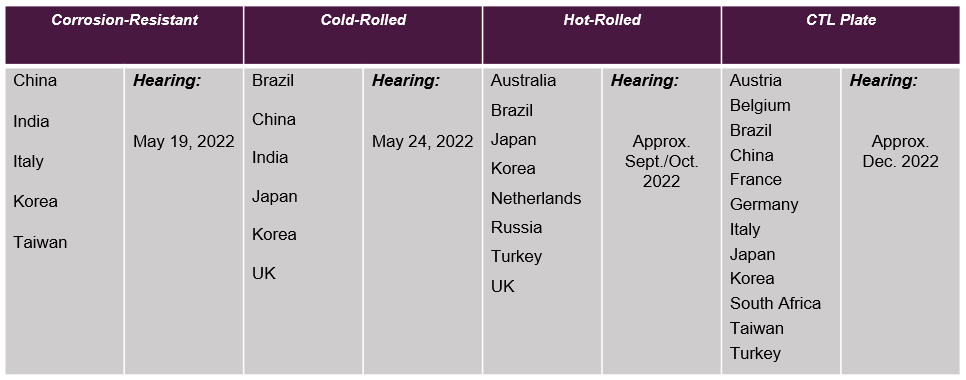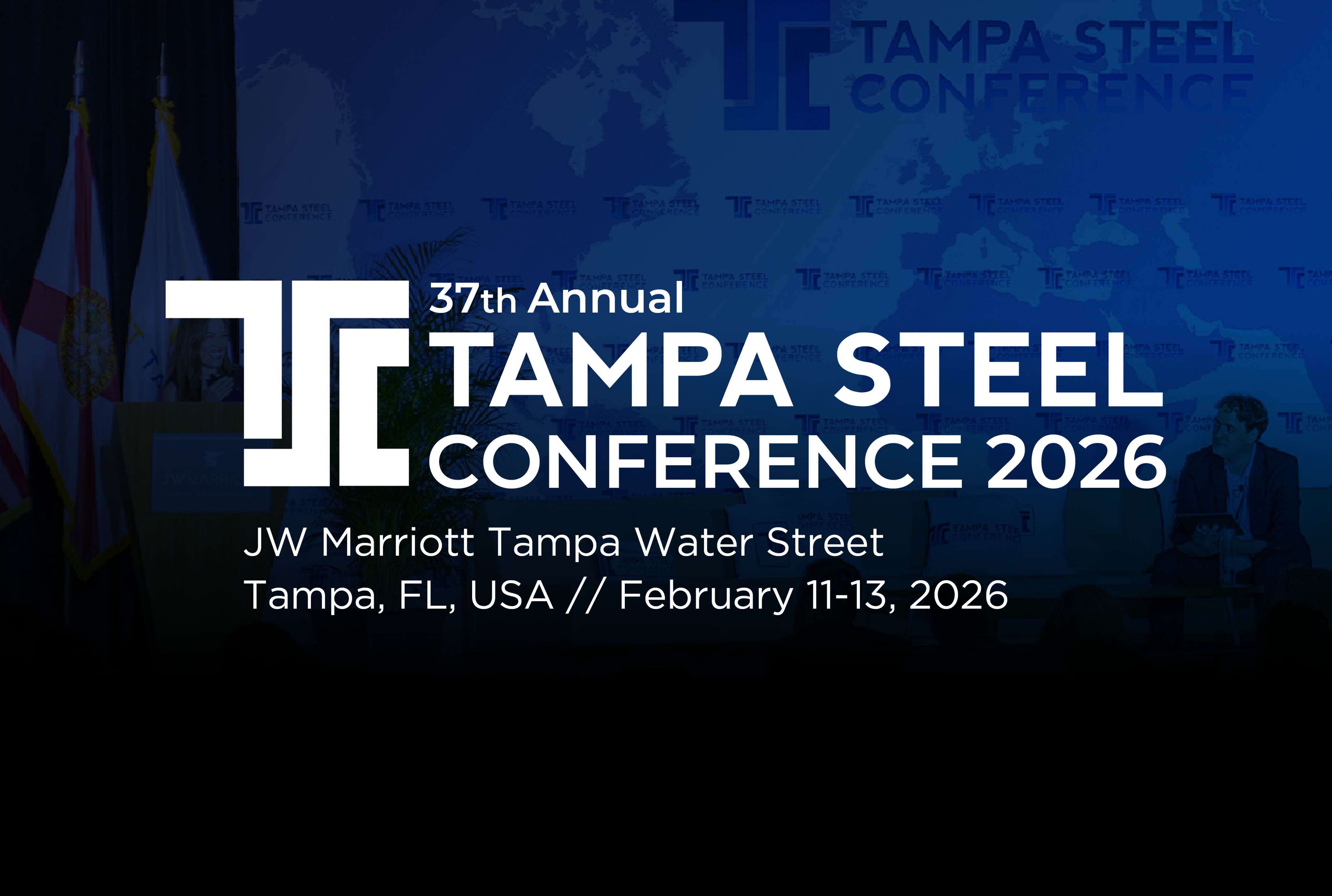Community Events

January 28, 2022
Community Chat: Price Covers Hot-Button Issues in Global Trade
Written by Tim Triplett
The U.S. steel industry has suffered tremendously from unfairly traded goods over the years. Many of the current antidumping and countervailing duty cases stem from import surges around five years ago and are coming up for review soon to determine if they should be extended.
“2022 is a critical year for sunset reviews (see chart below) of AD/CVD orders on steel products,” said trade attorney Alan Price, a partner with the Washington law firm of Wiley Rein. “Maintaining these orders is critical for the U.S. steel industry, particularly as we see the world normalizing and imports ramping up into the United States.”

Price, who was the featured speaker for Steel Market Update’s Community Chat webinar on Wednesday, commented on a number of today’s hot-button trade issues.
The U.S. can’t count on the World Trade Organization to address dumping and subsidies as the WTO’s dispute resolution system is broken, Price said. The WTO Appellate Body can’t function without new appointees, who were blocked by the Trump administration. And the Biden administration appears in no rush to fill those posts either. “The Appellate Body may not return absent fundamental changes not only in dispute resolution but also in broader WTO rules,” Price said.
China has long been accused of overcapacity and of bending global trade rules. It is also increasingly facing scrutiny from the U.S. for alleged human rights violations, notably in the Xinjiang region – where the Uyghurs, an ethnic minority group, are subject to forced labor, Price said.
Rules against forced labor have been in place since the 1930s but have never really enforced – until recently. Section 307 of the Tariff Act of 1930 “prohibits the importation of merchandise mined, produced or manufactured, wholly or in part, in any foreign country by forced or indentured labor,” he noted.
Under the Uyghur Forced Labor Prevention Act of 2021, all imports from the Xinjiang region are prohibited under the presumption that they likely were produced using forced labor. The Biden administration has begun seizing or blocking imports of products ranging from food to industrial materials under this new rule. While it has not had a significant impact on steel so far, it could if any product, or even raw materials used to make that product, can be traced back to Xinjiang, Price said.
“These issues are a lot more significant than fully perceived. Anyone with a complicated supply chain that flows through China should be concerned,” he said, noting that the compliance cost of this issue may encourage reshoring back to the U.S.
Responding to a question, Price said it’s hard to predict if and how the conflict between Russia and Ukraine might affect global steel trade. But it’s certainly possible U.S. economic sanctions on Russia could disrupt normal trade patterns. The ripple effect from elevated energy costs could extend into Europe and add to the cost of steel and aluminum production, for example.
The Section 232 tariffs on steel and aluminum remain in place on some countries, though their effects on imports and prices are declining due to the many exclusions that have been granted and the new deal with the European Union that replaced blanket 25% tariffs with a tariff rate quota (TRQ). The U.S. is currently in negotiations with the UK and Japan on similar deals.
Climate policy is a new trade flash point today, especially in steel, Price said. Part and parcel of any talks are discussions on how the trading partners plan to address climate-changing greenhouse gas emissions and excess global steelmaking capacity. “We often talk about climate policy and trade policy. Since the 2005-07 period when climate entered the discussion, the two have been integrally linked,” he noted.
Despite the TRQ agreement, the U.S. and EU don’t necessarily see eye to eye on these issues, Price said. The EU has a cap and trade system that accounts for the cost of carbon and is considering a carbon border adjustment mechanism (CBAM). “The EU may also try to keep scrap bottled up in Europe,” Price said, using “sustainability” as an excuse to ban scrap exports.
The U.S., in contrast, is looking at a different approach on climate, with little likelihood of cap and trade or a national price for carbon, Price said. “While there has been a CBAM proposed in the United States, there has really been no progress on that.”
He added: “The EU is attempting to force its version of regulation on the rest of the world. How this all sorts out will have potentially dramatic effects on steel and aluminum.”
Asked another webinar viewer: With so much electric arc furnace capacity coming online, is there any chance the U.S. will ban scrap exports?
China, which is the largest scrap generator in the world, is also the top scrap hoarder, with a 30% tariff that discourages scrap exports, Price said. While the U.S. Constitution prohibits export taxes, the government can prohibit exports of certain goods in the national interest. Much will depend on what happens in the rest of the world. “Raw material hoarding is a substantial issue in trade,” he said.
SMU’s next Community Chat will welcome service center executive Todd Leebow, president and CEO of Majestic Steel. Click here to register for this free webinar, which begins at 11 a.m. ET on Wednesday, Feb. 9. Leebow will also be a panelist during the Tampa Steel Conference Feb. 14-15.
By Tim Triplett, Tim@SteelMarketUpdate.com






